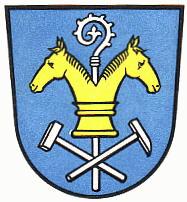Weilheim (kreis): Difference between revisions
Jump to navigation
Jump to search
Knorrepoes (talk | contribs) m (Text replace - "'''Origin/meaning :'''<br/>" to "====Origin/meaning====") |
Knorrepoes (talk | contribs) m (Text replace - "|width="15%"|50 px|right |} " to "|width="15%"|50 px|right |}<seo title="Wappen, Gemeindewappen" /> ") |
||
| Line 3: | Line 3: | ||
|width="70%" align="center" |'''Heraldry of the World<br/>Civic heraldry of [[Germany]] - [[Deutsche Wappen|Deutsche Wappen (Gemeindewappen/Kreiswappen)]]''' | |width="70%" align="center" |'''Heraldry of the World<br/>Civic heraldry of [[Germany]] - [[Deutsche Wappen|Deutsche Wappen (Gemeindewappen/Kreiswappen)]]''' | ||
|width="15%"|[[File:Germany.jpg|50 px|right]] | |width="15%"|[[File:Germany.jpg|50 px|right]] | ||
|} | |}<seo title="Wappen, Gemeindewappen" /> | ||
'''WEILHEIM (WM)''' | '''WEILHEIM (WM)''' | ||
Revision as of 19:25, 5 November 2012
| Heraldry of the World Civic heraldry of Germany - Deutsche Wappen (Gemeindewappen/Kreiswappen) |
WEILHEIM (WM)
State : Bayern
Incorporated into : 1973 Weilheim-Schongau
Origin/meaning
The arms were granted on March 6, 1964.
The arms show two horse-heads combined in a chess piece. This unusual charge is derived from the arms of the Lords of Hesselohe, who were judges in Weilheim in the Middle ages until 1486. The crosier symbolises the many important monasteries in the district. The lower part of the arms symbolise the important coal mining in the area. The colours are derived from the colours of the arms of the Estates of Pähl and Weilheim.
Literature : Stadler, K. : Deutsche Wappen - Bundesrepublik Deutschland. Angelsachsen Verlag, 1964-1971, 8 volumes.

